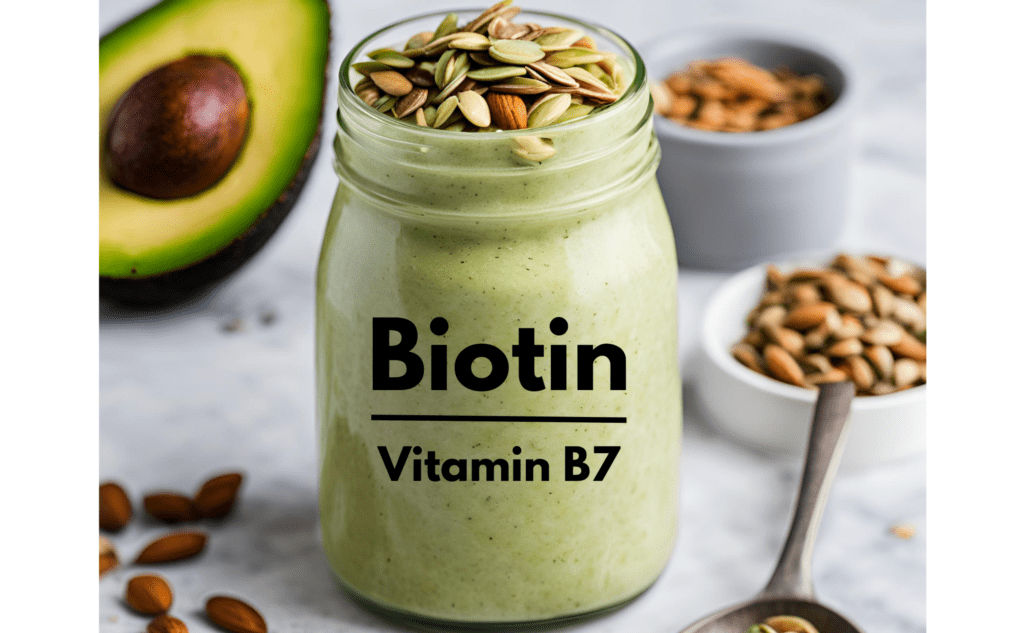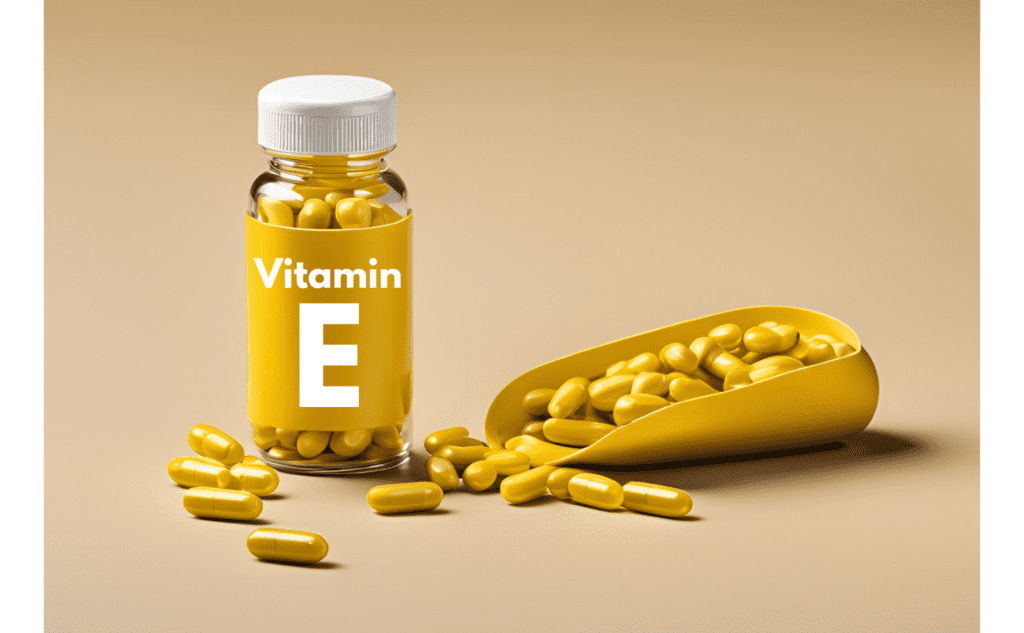Vitamin B Benefits For Better Health
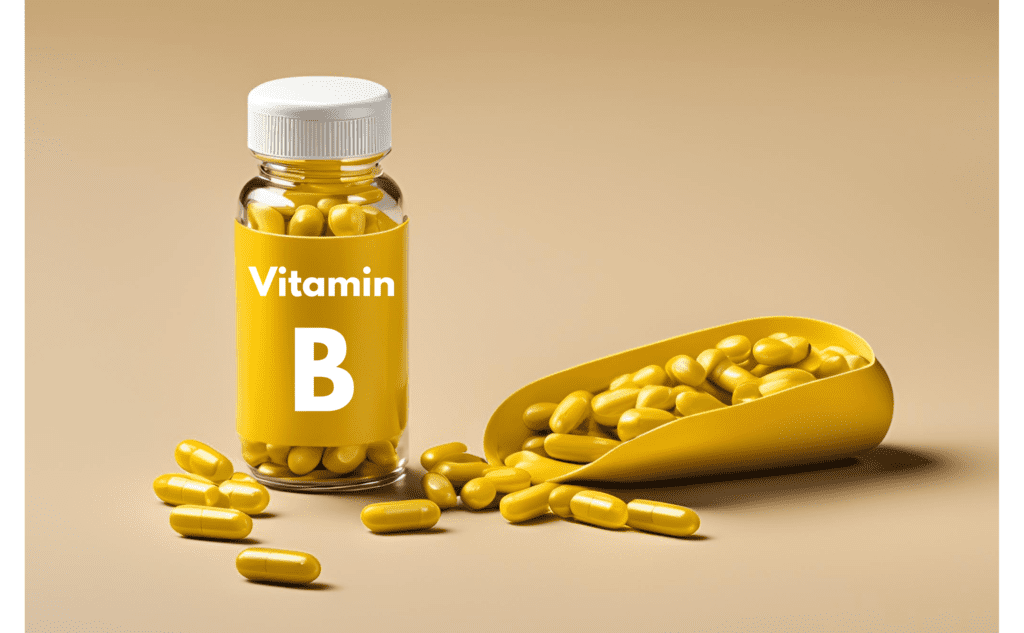
When we think about vitamins, we often focus on Vitamin C for its immune-boosting properties or Vitamin D for bone health. But there’s another group of vitamins that deserves just as much attention: the Vitamin B complex. This often-overlooked set of nutrients is crucial for a range of bodily functions and overall well-being. Let’s dive into its world, explore its benefits and discover how you can ensure you’re getting enough of these essential nutrients.
What is Vitamin B?
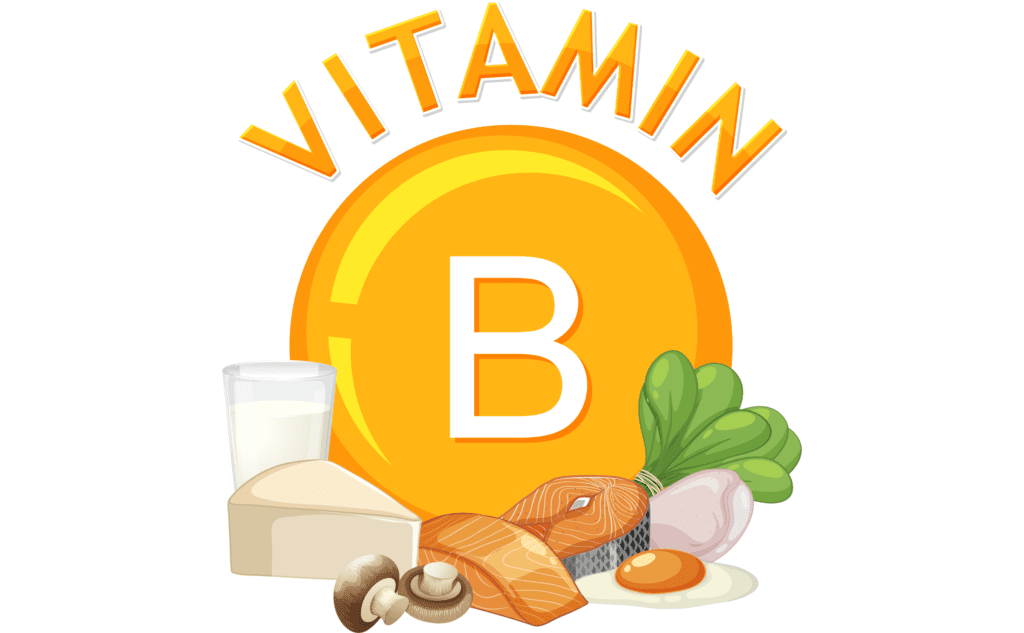
The B complex consists of eight distinct vitamins, each with its own unique role in maintaining health:
- B1 (Thiamine): Helps convert nutrients into energy and supports nerve function.
- B2 (Riboflavin): Essential for energy production, skin health and the metabolism of fats, drugs and steroids.
- B3 (Niacin): Supports digestive health, skin integrity and nerve function. It also aids in the process of turning food into energy.
- B5 (Pantothenic Acid): Involved in synthesizing coenzyme A, crucial for fatty acid metabolism and hormone production.
- B6 (Pyridoxine): Vital for amino acid metabolism, immune function and neurotransmitter production.
- B7 (Biotin): Important for carbohydrate, fat and protein metabolism, as well as maintaining healthy hair and skin.
- B9 (Folate or Folic Acid): Crucial for DNA synthesis, cell division and preventing neural tube defects during pregnancy.
- B12 (Cobalamin): Necessary for red blood cell formation, neurological function and DNA synthesis.
Benefits of these complex Vitamins

- Boosts Energy Levels: Its one of the most notable benefits is its role in energy production. It helps convert carbohydrates, fats and proteins from the food you eat into energy. If you’re feeling fatigued or low on energy, a deficiency in one or more B vitamins could be a contributing factor.
- Supports Brain Health: B – complex, particularly B6, B9 and B12, play a significant role in brain function. They help maintain healthy brain cells, support cognitive function and may even reduce the risk of neurological disorders. Adequate intake of these vitamins is associated with improved memory, concentration and mood.
- Promotes Healthy Skin and Hair: Vitamin B2 (Riboflavin), B3 (Niacin) and B7 (Biotin) are crucial for maintaining healthy skin and hair. These vitamins help improve skin texture, promote healing and may reduce acne and dryness. Biotin, in particular, is renowned for its role in supporting hair growth and strength.
- Enhances Immune Function: B vitamins are essential for a well-functioning immune system. Vitamin – B6, in particular, is involved in producing antibodies and maintaining lymphoid organs, which are crucial for fighting off infections. A balanced intake of these vitamins can help bolster your body’s natural defence.
- Supports Heart Health: These vitamins, especially B6, B9 and B12, help reduce levels of homocysteine, an amino acid linked to cardiovascular disease. By lowering homocysteine levels, these vitamins contribute to better heart health and reduced risk of heart disease.
How To Get These Vitamins
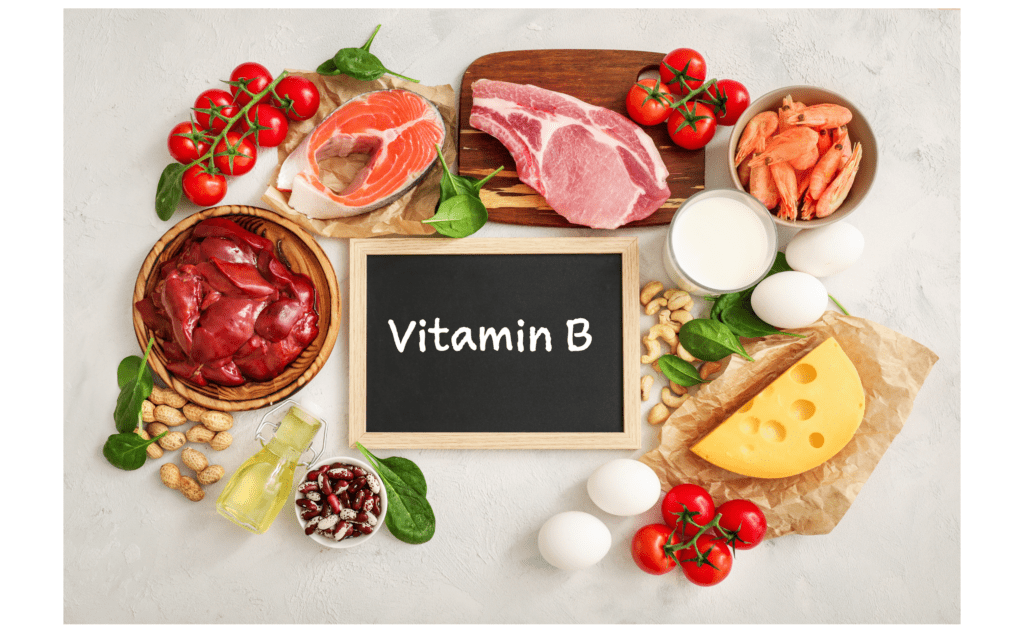
1. Eat a Balanced Diet: The best way to ensure you’re getting enough of it is through a balanced diet rich in whole foods. Foods high in in these vitamins include:
– B1 (Thiamine): Whole grains, legumes
– B2 (Riboflavin): Dairy products, eggs, lean meats
– B3 (Niacin): Poultry, fish, whole grains
– B5 (Pantothenic Acid): Avocados, nuts, seeds
– B6 (Pyridoxine): Bananas, chickpeas, poultry
– B7 (Biotin): Eggs, nuts, seeds
– B9 (Folate): Leafy greens, beans, fortified cereals
– B12 (Cobalamin): Meat, fish, dairy products
2. Consider Supplements: If
you’re unable to get enough B – Vitamins from your diet, supplements can be a
practical alternative. These supplements provide all eight B vitamins in
one pill, making it easier to cover your bases.
3. Be Mindful of Special Needs:
Certain groups may need more of these vitamins due to specific health conditions,
dietary restrictions or life stages. For example, pregnant women require
additional folate and older adults may need more B12 – Vitamin due to absorption
issues.
Conclusion
It is far more than just a collection of nutrients; it’s a vital part of maintaining overall health and well-being. From boosting energy and supporting brain function to promoting healthy skin and heart health, its benefits are extensive and impactful. By incorporating a variety of B – Vitamin rich foods into your diet and, if necessary, considering supplements, you can ensure you’re giving your body the support it needs to thrive.
Are you paying enough attention to your B – Vitamins intake? Share your thoughts or questions in the comments below:











